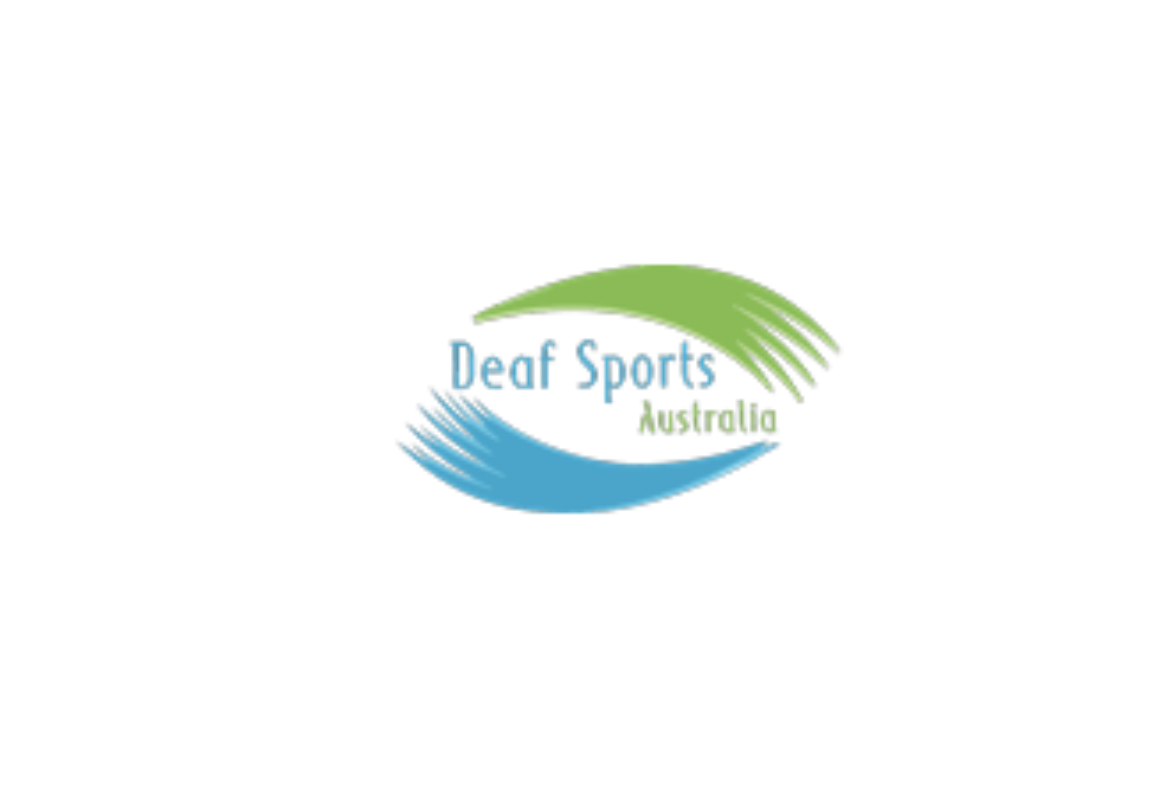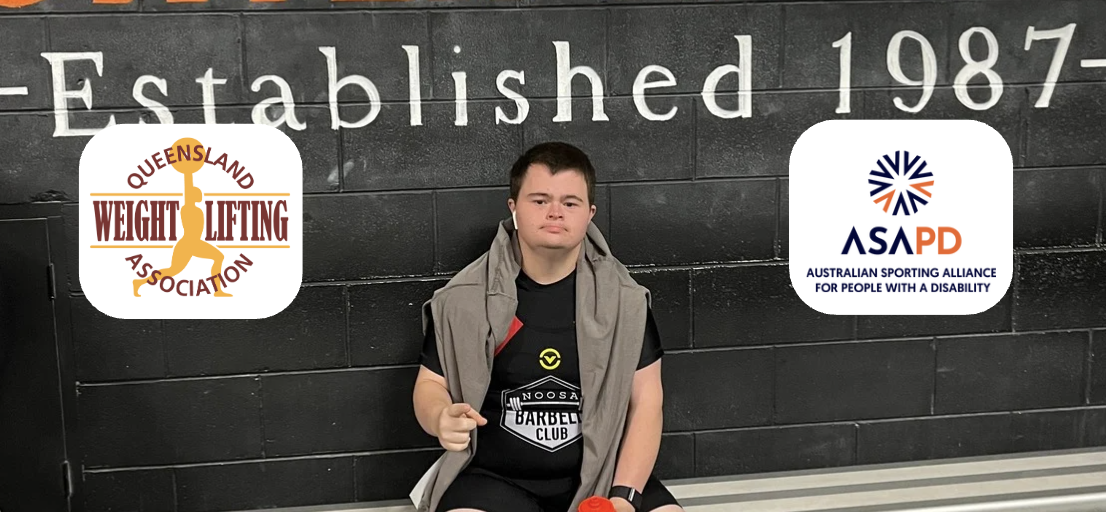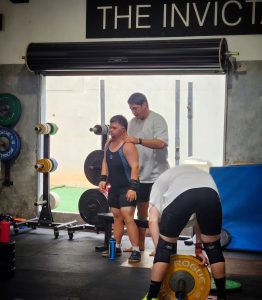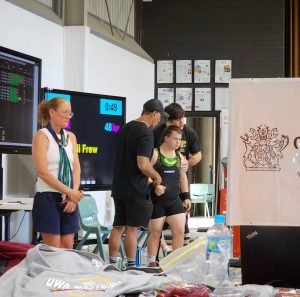At 22, Eli Frew demonstrates how passion, persistence, and a supportive community can open doors in sport. As a dedicated Sunshine Coast weightlifter, Eli builds his life around training, coaching, and relying on those who believe in him.
“My name is Eli Frew, I’m 22 years old, and outside of weightlifting I enjoy watching the NRL. My favourite team is the South Sydney Rabbitohs, and my all-time favourite player is Latrell Mitchell,” Eli shares. “I work as an assistant CrossFit coach at CrossFit 4566 under head coach Woogie Marsh, and I also do cleaning services in the community.
“My biggest supporters are my family, my Noosa Barbell Club community, and my best mates Zac and Taj. They’ve been with me since I first started training and have always believed in me, even when others doubted what I could do.”
Living with Down syndrome, Eli faces extra challenges in his sporting journey. “I have Down syndrome, which means I was born with an extra chromosome. This affects how I learn and communicate. Sometimes it takes me longer to pick up new skills or remember instructions, and it can be harder for me to explain myself. In weightlifting, this can be challenging because the sport requires learning complex movements and technical detail.
 “But with patient coaching, repetition, and the support of my friends, I’ve been able to learn these movements and continue to improve. I want people to know that Down syndrome doesn’t stop me from being an athlete.”
“But with patient coaching, repetition, and the support of my friends, I’ve been able to learn these movements and continue to improve. I want people to know that Down syndrome doesn’t stop me from being an athlete.”
Eli notes that the real challenge is not his disability, but assumptions from others. “The biggest barrier is not my disability—it’s when people don’t give me a chance. Sometimes clubs or organisations doubt whether I can meet the standard or think it will be too hard to include me. Other times, there isn’t enough information about how athletes with disabilities can participate or compete.
“When communities don’t open their doors, it can feel like sport isn’t for people like me. What makes the difference is when people focus on inclusion, patience, and support that’s when I can thrive.”
As for goals, Eli is aiming high in weightlifting. “My dream is to one day compete overseas, especially in an adaptive weightlifting competition in the USA. In Australia, I want to step onto the national stage and represent myself and my club.”
Eli credits Noosa Barbell Club and the Queensland Weightlifting Association for their support. “Noosa Barbell Club feels like a family. I can train with my mates, get coaching that works for me, and feel supported no matter what. Everyone has my back.
“QWA has also helped by making competitions more flexible. I still remember my first competition at Sunshine Coast Weightlifting Club head coach Barry Harden allowed me to compete on a 15 kg bar. That small adjustment opened the door for me. “Now, Noosa Barbell runs its own club competitions where I can lift alongside able-bodied athletes. If I want more of a challenge, I can be placed in either the men’s or women’s session, depending on the numbers, so I can still enjoy that competition feeling. These kinds of adaptations show that small changes make a big difference in accessibility.”
Eli encourages sports clubs to open their doors and people with disabilities to give sport a go. “Accept people with disabilities with open arms. You never know how much of an impact it might make on their life. A small change in attitude or environment can give someone the chance to discover their passion. “Have a go. Put yourself out there. I know it’s not easy, but you never know what might happen until you try. My journey in weightlifting has taken 14 years of training, learning, and support it didn’t happen overnight.”
“Sport may not always have a clear pathway for people with disabilities, but that doesn’t mean there isn’t a place for you. With patience and persistence, you can create your own pathway.”



 “But with patient coaching, repetition, and the support of my friends, I’ve been able to learn these movements and continue to improve. I want people to know that Down syndrome doesn’t stop me from being an athlete.”
“But with patient coaching, repetition, and the support of my friends, I’ve been able to learn these movements and continue to improve. I want people to know that Down syndrome doesn’t stop me from being an athlete.”